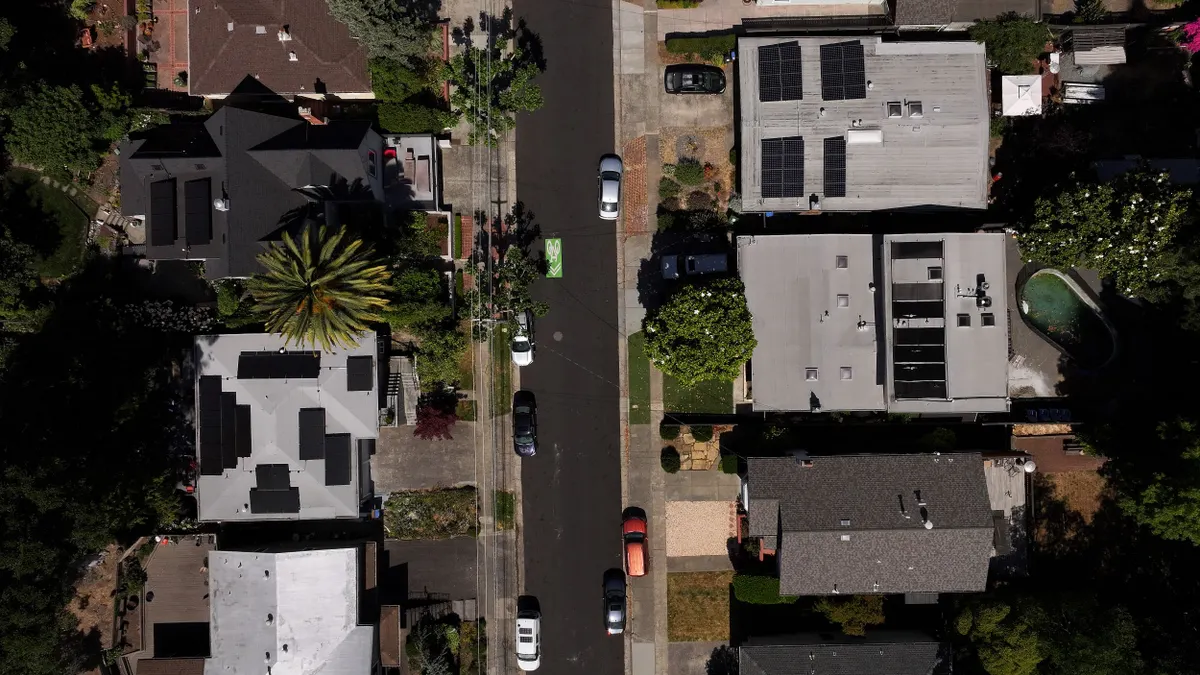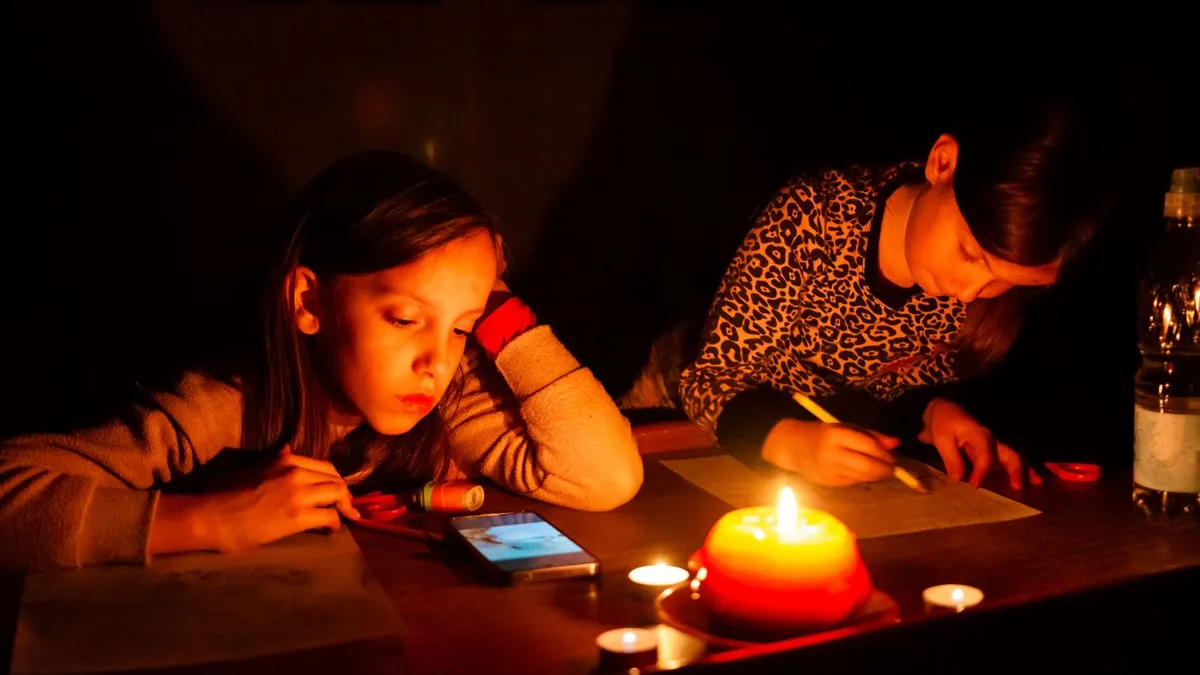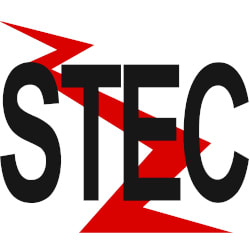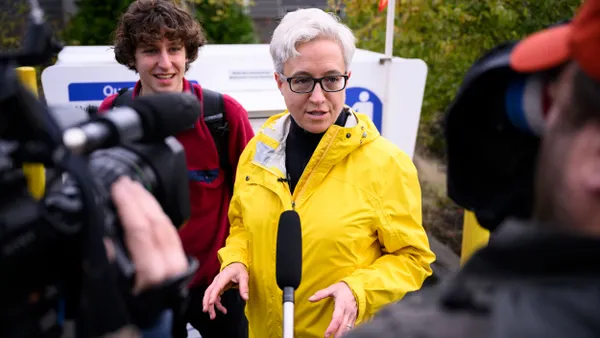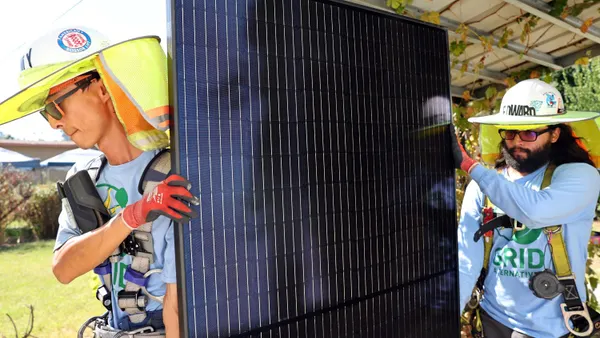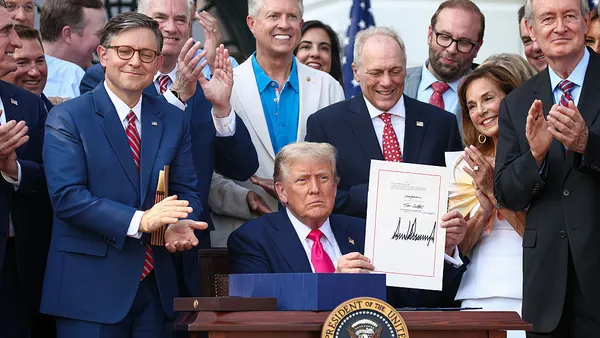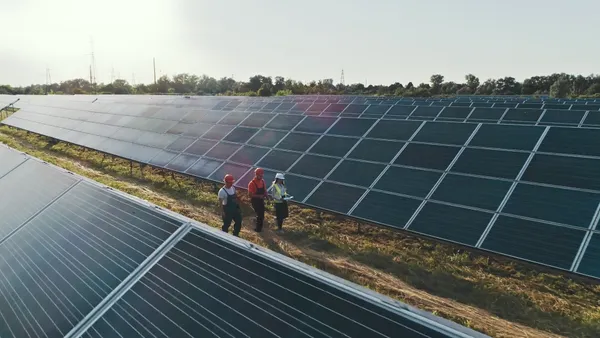Dive Brief:
- Newly-released text messages are drawing scrutiny to the relationship between Arizona's consumer advocate and the its largest utility, Arizona Public Service, in the state's heated rooftop solar debate.
- The texts, obtained by the Checks and Balances Project, a nonprofit watchdog group, show APS executive Greg Bernosky communicating with Lon Huber, a consultant for the Arizona Residential Utility Consumer Office, about how to shape the state's Value of Solar (VOS) docket, opened by regulators last October.
- Checks and Balances claims the texts show that RUCO and APS "conspired" to influence the outcome of the VOS proceeding before it began. Both Huber and Bernosky told Utility Dive their intent was to collaborate on setting the procedural grounds for the docket, and that such communications between parties in a regulatory proceeding are common practice.
Dive Insight:
Established in 1983, RUCO is meant to represent the interests of residential utility customers before the Arizona Corporation Commission.
Often times, that advocacy comes as a check on utility claims and forecasts. In each state, consumer advocates scrutinize utility spending proposals, helping ensure they are not overbuilding infrastructure or charging customers too much.
But in Arizona's solar debate, new communications appear to show RUCO's role was more collaborative than combative with utilities when the state set up its Value of Solar docket a year ago.
The batch of texts, obtained by Checks and Balances through a public records request to RUCO, show RUCO consultant Lon Huber and APS Director of State Regulation Greg Bernosky discussing how to manage the novel docket, which seeks a more accurate valuation scheme for distributed resources.
Regulators opened the VOS docket on Oct. 20, 2015 after months of contention over an APS proposal to raise fees on solar customers. The day of the vote, Huber texted Bernosky: “We need commission vote … to shape the value study before it starts.”
Bernosky replied, "BL on it," a reference to Barbara Lockwood, APS's vice president for regulation.
Collaborating on solar valuation was not new to Huber and Bernosky. On Sept. 18, 2015, Bernosky texted Huber that he "talked to [RUCO Director David] Tenney about catching up with you and he was good with it."
"Our folks also teed up to chat on solar value models when u have a date in mind," Bernosky wrote.
The texts obtained by Checks and Balances date back to August, when Huber texted Bernosky regarding a decision from a regulatory judge that APS must ask for new solar fees in a rate case.
Both Huber and Bernosky confirmed to Utility Dive they had sent the text messages, arguing the communication is not only ethical, but a basic part of their jobs in representing parties before the commission.
"There was no presumption of outcome" for the solar valuation study, Bernosky told Utility Dive. Instead the texts were intended to "get this set up so we can do this [valuation study] once and for all, and take the noise out of the background to initiate a fact-based discussion," he said.
"RUCO was asking the commission to vote on the scope of the docket and to develop a firm timeline before VOS written testimony was due," Huber wrote to Utility Dive in a text. "A few texts, with no context, from a year ago are being misinterpreted by parties who are not a part of the VOS proceeding and haven't looked at actual positions on the VOS docket."
RUCO did not return multiple requests for comment from Utility Dive. Through a lawyer, RUCO Director David Tenney told the Arizona Republic that he authorized Huber to speak with APS on solar valuation. Both RUCO and APS share the concern that rooftop solar customers do not pay their fair share for grid upkeep, putting those costs on others, as the consumer advocate outlined in a 2013 paper.
"It is well-known that RUCO and APS share a position here because we both acknowledge a cost shift is happening — the question is to what extent," Tenney told the Republic. "That issue will be fully litigated in the value of solar proceeding before the commission."
Huber, a consultant for California-based Strategen, has been retained by other consumer advocates for work on solar issues, including in Maine, where he helped design a novel net metering successor tariff. There and in Arizona, his work has caught the attention of Checks and Balances, which labeled him a "hired gun" for the utility sector and its trade group, the Edison Electric Institute.
Huber refuted claims that the text messages or his past work show a bias toward utilities in dealing with solar issues. Checks and Balances, which was until recently funded in part by SolarCity, is trying to "delegitimize the results" of the solar valuation docket, he said.
While Checks and Balances only requested communications between Huber and utility officials, Huber himself said he routinely communicates and socializes with other parties in the rate case as well, including solar companies.
After receiving Huber's communications, Checks and Balances requested additional text messages with ACC commissioners, other utilities and EEI. It did not request communications with solar companies.
RUCO, despite sending the first round of texts, told the organization it had no more to give.
"RUCO does not provide Mr. Huber with a mobile phone, nor did it do so while he was an employee," Jordy Fuentes, a RUCO lawyer, wrote in a letter dated Sept. 8, 2016. "As such, RUCO does not have custody of any text messages that presently reside on Mr. Huber's phone or any previous phones."
Tenney did not elaborate on how RUCO had access to the text messages in his comments to the Republic.
Text message controversies are becoming familiar to the Arizona utility sector. Last year, Checks and Balances pushed for the release of over 1,000 text messages between Commissioner Bob Stump and APS officials, claiming they may uncover unethical communications. In March, Judge Randall Warner ruled not one of the texts was a part of the public record, blocking their release.
The Arizona Value of Solar docket, meanwhile, took on a new significance last month when a regulatory judge ruled its conclusions can be applied to utility rate cases, and regulators delayed a decision on solar rates until the proceeding concluded. The final solar valuation study is expected this autumn.
This post has been updated to clarify which from which parties Checks and Balances requested communications.



